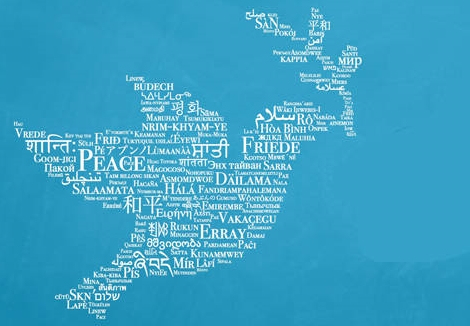 Yesterday (September 21), the world marked the International Day of Peace, themed “Partnership for Peace – Dignity for All”, with various activities. At the University of Ilorin for example, the Centre for Peace and Strategic Studies organised a special public lecture, delivered by Mr Slaku Lugard Bijimi, a Zonal Coordinator of the National Emergency Management Agency (NEMA), to commemorate the day. He spoke on “Security, Disaster Management and the Academic Environment”.
Yesterday (September 21), the world marked the International Day of Peace, themed “Partnership for Peace – Dignity for All”, with various activities. At the University of Ilorin for example, the Centre for Peace and Strategic Studies organised a special public lecture, delivered by Mr Slaku Lugard Bijimi, a Zonal Coordinator of the National Emergency Management Agency (NEMA), to commemorate the day. He spoke on “Security, Disaster Management and the Academic Environment”.
As I said on the occasion, “the world appears to be going amok with such savagery that even makes wild animals green with envy.” While tragedies of overwhelming proportions result in death, displacement and disaster across the world, our schools that should breed the best for our society are also infested by social vermin.
Apart from cultism that has seeped into many secondary schools in Nigeria, moral meltdown that characterises the society has also taken our schools hostage. A friend told me recently how a girl of 15 was raped by about 10 boys in a public school in Ilorin. The girl bled terribly and the boys laughed, taunting her that she should be glad she had become a woman.
When the mother was called, she said she wanted no case or publicity in fear of backlash. Life continues and perhaps the boys would be emboldened to perpetrate worse crimes in future. The whole scenario leaves a lump in one’s throat. It was mum because the family wanted no public shame to contend with after the humiliation.
It is not only boys that are unruly, young girls have also gone haywire. In a secondary school in Ukwa West Local Government Area of Abia State, a school girl was recently sent home to cut her hair by a female teacher. She returned later with her mother and siblings. While the mother held the teacher, she asked the sons to cut the teacher’s hair. Those who wanted to intervene were dealt with by the woman and her children until security forces restored normalcy. It beggars belief why we have suddenly sunk into this depravity, which would make a JS 2 girl commit suicide because she was jilted by her boyfriend in another school in Lagos.
In the larger society, there is much hatred that can choke people to death as a result of political, ethnic, religious and other differences. The putrid smell of online comments to stories can suffocate the unwary. Compassion is becoming increasingly antiquated as we are daily served with nerve-wrenching stories of man’s inhumanity to man.
The occasion of the International Day of Peace should serve as a reminder on the need to fashion out the pathway to peace. There are several solutions on the shelves but it is time we gave peace education a chance. Incidentally, the United Nations Secretary General, Mr Ban Ki-moon, dedicated the 2013 International Day of Peace to peace education.
Peace education is “the process of acquiring values, the knowledge and developing the attitudes, skills and behaviours to live in harmony with oneself, with others, and with the natural environment.” 10 key words from the definition are process, values, knowledge, attitudes, skills, behaviours, harmony, oneself, others and environment.
The first important thing is to keep the process in motion. The process of peace education, as James Page tells us in his “Peace Education: Exploring Ethical and Philosophical Foundations” (2008), is by “encouraging a commitment to peace as a settled disposition and enhancing the confidence of the individual as an individual agent of peace; as informing the student on the consequences of war and social injustice; as informing the student on the value of peaceful and just social structures and working to uphold or develop such social structures; as encouraging the student to love the world and to imagine a peaceful future; and as caring for the student and encouraging the student to care for others.”
Peace education should emphasise truthfulness, honesty, integrity, character, humility, justice, kindness and love. Life is not just about carnal pleasure, personal interest, material wealth and political power that goad many Nigerians today.
One vital value that Nigerians must re-discover and teach is love, the type that filled Nelson Mandela’s heart. As the great Mandela said, “No one is born hating another person because of the colour of his skin, or his background, or his religion. People must learn to hate and if they can learn to hate, they can be taught to love, for love comes more naturally to the human heart than its opposite.”





Leave a Reply